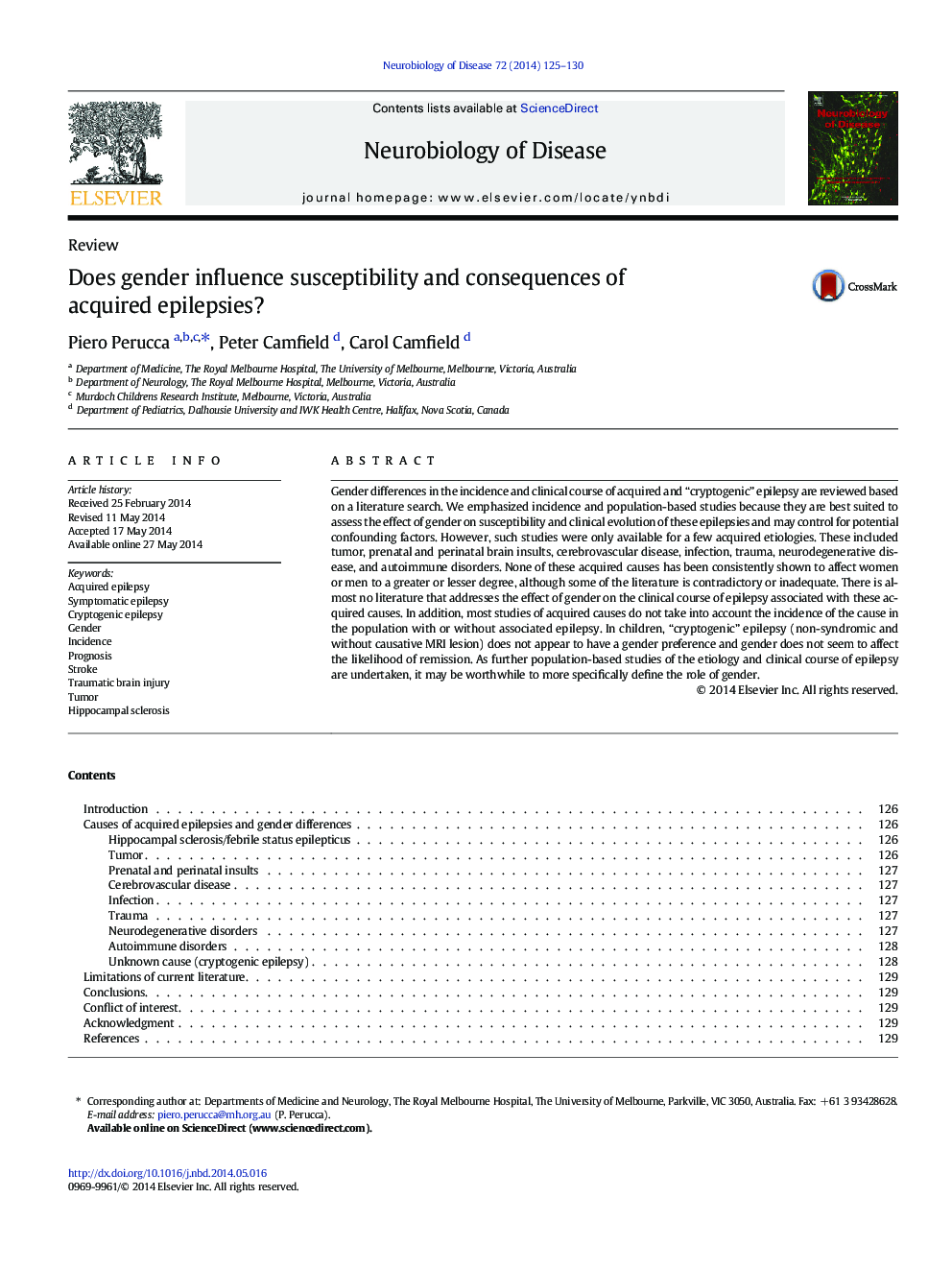| Article ID | Journal | Published Year | Pages | File Type |
|---|---|---|---|---|
| 3069319 | Neurobiology of Disease | 2014 | 6 Pages |
•For few common etiologies, susceptibility to develop epilepsy is unaffected by gender.•For other etiologies, data are missing, inconclusive or conflicting.•There is virtually no data on gender effects on the prognosis of acquired epilepsies.
Gender differences in the incidence and clinical course of acquired and “cryptogenic” epilepsy are reviewed based on a literature search. We emphasized incidence and population-based studies because they are best suited to assess the effect of gender on susceptibility and clinical evolution of these epilepsies and may control for potential confounding factors. However, such studies were only available for a few acquired etiologies. These included tumor, prenatal and perinatal brain insults, cerebrovascular disease, infection, trauma, neurodegenerative disease, and autoimmune disorders. None of these acquired causes has been consistently shown to affect women or men to a greater or lesser degree, although some of the literature is contradictory or inadequate. There is almost no literature that addresses the effect of gender on the clinical course of epilepsy associated with these acquired causes. In addition, most studies of acquired causes do not take into account the incidence of the cause in the population with or without associated epilepsy. In children, “cryptogenic” epilepsy (non-syndromic and without causative MRI lesion) does not appear to have a gender preference and gender does not seem to affect the likelihood of remission. As further population-based studies of the etiology and clinical course of epilepsy are undertaken, it may be worthwhile to more specifically define the role of gender.
